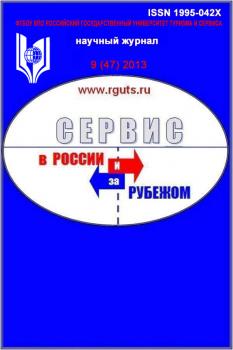The article examines the main organizational and methodological aspects of the moral education of student contingent in higher professional educational establishments. The author substantiates the leading role higher education establishments in the formation of moral priorities of the most educated part of youth. This presupposes the improving of relevance and quality of teaching of the cycle of humanitarian disciplines because the requirements are now to the educational activities of the Russian high school, actualize not only the problem of increasing the quality of education, but also the comprehensive personal development of future professionals who will carry out professional activities in the realities of the current society. The moral potential and the level of general culture of the future first-year students can be possible to identify on the stage professionally-oriented activities. The moral potential and the level of general culture of the future first-year students can be identified on the stage professionally-oriented activities. Clear guidelines for working with the generated the student contingent laid in the federal state standards. They aim at achieving the objectives of modern Russian higher education on the base of use a wide range of traditional and innovative teaching methods and techniques, which targeted at stimulating of personal development, implementation of creativity and intellectual possibilities of students. They aim at achieving the objectives of modern Russian higher education on the base of use a wide range of traditional and innovative teaching methods and techniques, which target at stimulating of personal development, implementation of creativity and intellectual possibilities of students. The educational orientation of teaching is realizing in personal-active, cultural, individual and creative, communicative and dialogic aspects of the pedagogical process. Training of graduate of higher educational establishments now should be an educational process, all parts of which stand in an indissoluble unity. Comprehensive solution of educational problems not only determines the professional readiness, but also ideological positions, the level of moral and civic consciousness of the young specialist.
higher professional education, moral education, humanitarian disciplines in higher educational establishment
1. Borytko, N.M. Eticheskoe vospitanie. - Volgograd: izd-vo VGIPK RO, 2006. - 32 s.
2. Bugaeva, T.P., Gafurova, N.V. Vospitatel´nyy protsess v vuze kak sistema. Vysshee obrazovanie v Rossii. - 2009. - № 6. - S. 102-106.
3. Danilyuk, A.Ya., Kondakov, A.M., Tishkov, V.A. Kontseptsiya dukhovno-nravstvennogo razvitiya i vospitaniya lichnosti grazhdanina Rossii v sfere obshchego obrazovaniya: proekt. - M.: Prosveshchenie, 2014. - 24 s.
4. Dimitrieva, V.N. Pedagogicheskoe obespechenie stanovleniya dukhovno-nravstvennoy kul´tury lichnosti studentov v obrazovatel´nom protsesse. Gumanitarnyy vektor. Seriya: Pedagogika, Psikhologiya. - 2014. - № 1 (37).
5. Portal Federal´nykh gosudarstvennykh obrazovatel´nykh standartov. [Elektronnyy resurs]: URL: http://fgosvo.ru/support/37/4/1 (data obrashcheniya: 21.01.2015).
6. Rikhnovets, A.A. Kul´turno-nravstvennoe vospitanie studentov vuza. Psikhologiya, sotsiologiya i pedagogika. - 2014. - № 2. [Elektronnyy resurs]: URL: http://psychology.snauka.ru/2014/02/2805 (data obrashcheniya: 15.01.2014).





